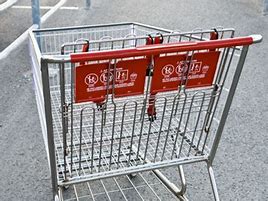|
GROCERY STORES AND YOUR HEALTH By Pierre Mouchette | Real Property Experts LLC Background - as early as the 14th century, a grocer was a dealer in edible dry goods such as spices, peppers, sugar, tea, and coffee. Because these items were often bought in bulk, they were named after the French word for wholesaler or grossier. The first self-service grocery store, Piggly Wiggly, was opened in 1916 in Memphis, Tennessee, by Clarence Saunders, an inventor, and entrepreneur. Before this, a customer would walk up to a counter or display and ask for the food items they wanted to purchase. They could also hand over a grocery list as an order that the grocer or other clerks would then fill.2 Sylvan Goldman, owner of the Humpty Dumpty supermarket chain in Oklahoma, invented and introduced the first shopping cart on June 4, 1937. This invention came about from the tinkering of Goldman and an employee named Fred Young. The shopping cart altered forever how consumers shopped for groceries. The Problems Thanks to this wheeled assistant, those looking to reprovision could shop longer and for more significant quantities than in the days when purchases were all carried by hand. Although this appliance created convenience for the shopper, it also created new problems. That is, harmful bacteria and viruses could quickly be passed from one individual to another. This happens because the handles of shopping carts are grasped by many people, day in and day out, and skin flora remains by usage and the nasty bugs of ‘unwashed’ hands. As for the fold-out child’s seat found in most carts, it remains the cart’s region of choice for fruits and vegetables, items that are often eaten uncooked or unwashed. Bottom line…… saliva, blood, fecal matter, mucus, bacteria, and viruses such as E. coli, staphylococcus, salmonella, influenza, and more can live on grocery carts, a sorry fact most shoppers are unaware of. In all fairness, some stores are responding by making disinfectant wipes available for customers who want them. Researchers state that sanitizing wipes provided by many grocery stores take at least 10 minutes of contact time to kill pathogens. FYI - if your store does not offer sanitizing wipes, try regular baby wipes. They supposedly work. A Solution? There is a system on the market that focuses on cleaning the entire cart rather than just parts of it. PureCart is a sort of drive-through washer that sanitizes the whole contraption. It works by coating the carts with a safe mist of a peroxide-based disinfectant, the same solution used to clean dialysis machines and poultry processors. Does your store have a system? GROCERY STORE FAQs Did you know that the stores where you purchase food for your family are divided into the following segments - upscale and budget stores, large and small grocery stores, superstores? Once you touch anything associated with a grocery store, you subject your health to all types of health risks? SHOPPING FAQs
Comments are closed.
|
Archives
May 2024
|
